Here you can find the catalogue of books published in English by CETIM in our collections:
PubliCetim Books published by CETIM or collectively in a pocket format. Food sovereignty, international law, North/South relations, struggles for the emancipation of peoples and their history, migration issues, environment, modes of transformation of our societies, transnational corporations…
Hors-série Books published in co-publication with partner organisations or which do not fit into the pocket format of the PubliCetim collection.
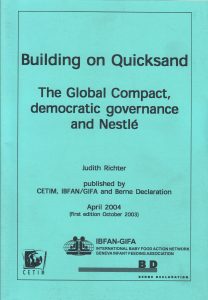
– pages
From the start, various NGOs have been raising questions about the alleged benefits and risks of Global Compact, a high level interaction between the United Nations and the business community. This publication, commissioned by CETIM, Geneva Infant Feeding Association (GIFA-IBFAN) and Déclaration de Berne does not aim to summarize all of these concerns. It rather suggests focusing on two main lines of questioning. These two line emerge from the debates between the Global Compact proponents and its critics: What is the value of the Global Compact in terms of changing corporate practices? More specifically, is it an arrangement that helps shift corporate practices towards the better – or is it rather an arrangement that helps corporations continue to do their business as usual and moreover confers on them additional protection from legally-binding regulation and public pressure? What is the relationship between the Global Compact and global democratic governance? In other words: Does the Global Compact enhance – or undermine – efforts to promote democratic decision-making in a globalising world? Both these questions are addressed at a theoretical level as well as by a case study focusing on the gaps between words and deeds, illustrated with the case of one of the latest prominent participants of the Global Compact: the food and beverage transnational Nestlé. Dr. Judith Richter is author of Holding Corporations Accountable: Corporate Conduct, International Codes and Citizen Action, Zed Books, London and New York, 2001 and ‘We the Peoples’ or ‘We the corporations’, Critical reflections on UN-business partnerships, IBFAN-GIFA, January 2003.
Lire la suite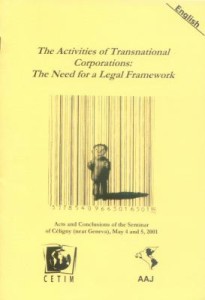
CETIM/AAJ
2001 – 40 pages
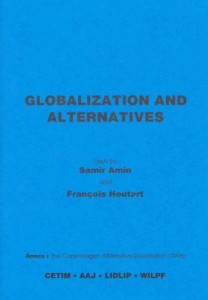
Samir AMIN, François HOUTART
2000 – 28 pages
The construction of a unipolar world by the triad, the United States, Japan and Europe, is th unilateral imposition by the dominant capital of transnationals and the deployment of the American military empire to which all nations would be constrained to submit. The hegemonic strategy of the United States and its NATO allies is today the prinicple adversary of social progress, of democracy and peace in the world.
Lire la suite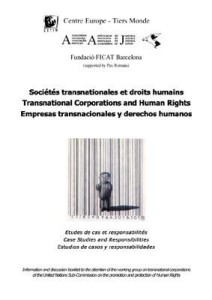
CETIM/AAJ
2000 – 176 pages
This booklet has been designed as an information and reflection material intended for the Working Group of the Sub-Commission on Human Rights of the United Nations. It is not limited to this framework and fits into a working process on the impact of transnational corporations (TNCs) on human rights.
Lire la suite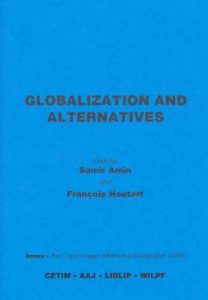

Ouvrage collectif
1975 – pages
An european study compiled and produced by Angola Comité/Amsterdam, Anti-Apartheid Movement in Britain/London, Anti-Apartheid Movement in Ireland/Dublin, Boycot Outspan Aktie/Leiden, Centre Europe – Tiers Monde/Geneva, Comité contre le colonialisme et l’apartheid/Brussels, Ecumenical Research Exchange/Rotterdam, Informationsstelle Südliches Afrika/Bonn, International Defence and Aid Fund for Spouthern Afrika/London
Lire la suite